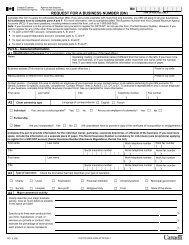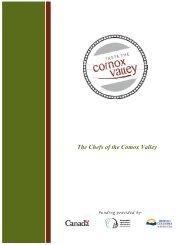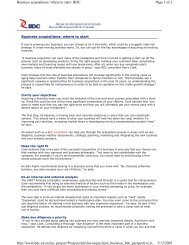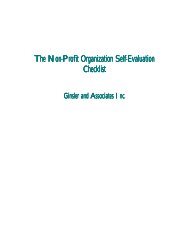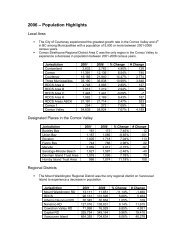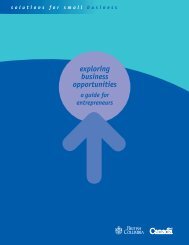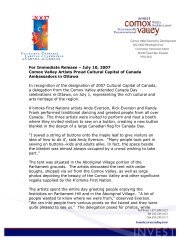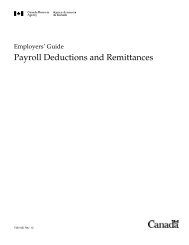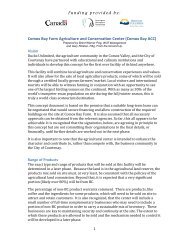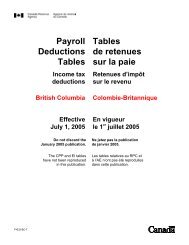qprev_HBB Manual 2.qxd - Small Business BC
qprev_HBB Manual 2.qxd - Small Business BC
qprev_HBB Manual 2.qxd - Small Business BC
You also want an ePaper? Increase the reach of your titles
YUMPU automatically turns print PDFs into web optimized ePapers that Google loves.
Understand the BasicsStarting vs. OperatingIf you are considering a home-based business andneed money, what you are looking for first isstart-up capital. Capital in business meansmoney. Funding needed to run a business, tokeep it going once started, is called operatingmoney or working capital. Start-up capital andoperating capital are totalled separately forpurposes of business finances. Begin to thinkabout them separately now, each one representinga different stage in your business development.Start-up capital is the total amount of money youneed to open your doors for business, and to keepthem open until sufficient revenue can bedepended on. Operating capital is the amountrequired to keep the business going after thestart-up. It includes salaries, wages, rent,expenses, supplies, utilities, advertising,depreciation, and interest payments. <strong>Small</strong>business advisors recommend that start-upexpenses include at least six months operatingcapital, because even though revenue will comein during that time, the start-up phase also bringswith it unexpected expenses.A common problem for small businesses isunderestimating how much money is needed,especially for operating. The result is additionalstress after start-up, cash not coming in when it isneeded, and making do with insufficient capital.This is easy to understand, because no person orbusiness wants to carry the costs of unnecessarydebt. Insufficient operating capital is a pitfall toavoid.Obtain Start-up CapitalYour Own MoneyMost lenders want to know that a business personhas invested some personal assets into thebusiness. This translates into ownership, calledequity. That investment can come from:• Selling personal assets• Cutting current personal and business expensesin order to make money available• Drawing on savings• Using credit cards to get cash• Borrowing against life insurance• Selling holdings or investments• Cashing in bonds or savings plans• Increasing a house mortgage• Keeping a job and using a portion of the othersalary for the business<strong>Business</strong> jargonWhen you launch a business you’ll access twodifferent types of funds (capital) which arehandled separately for reporting purposes later.Start-up capital – This is the total amount ofmoney you need to open your doors and keepgoing until a regular supply of revenue comes in.This money is a one-time only expense.Operating capital – Once launched, you’ll needmoney to pay rent, supplies, utilities ,advertising, depreciation, interest payments andso on, including wages for everyone involved.Friends and FamilyEven with scrimping, saving and carefulmanagement, you may not be able personally toprovide the financing your business needs. Thefirst source of borrowed money is usually family,70solutions for small business home-based business



